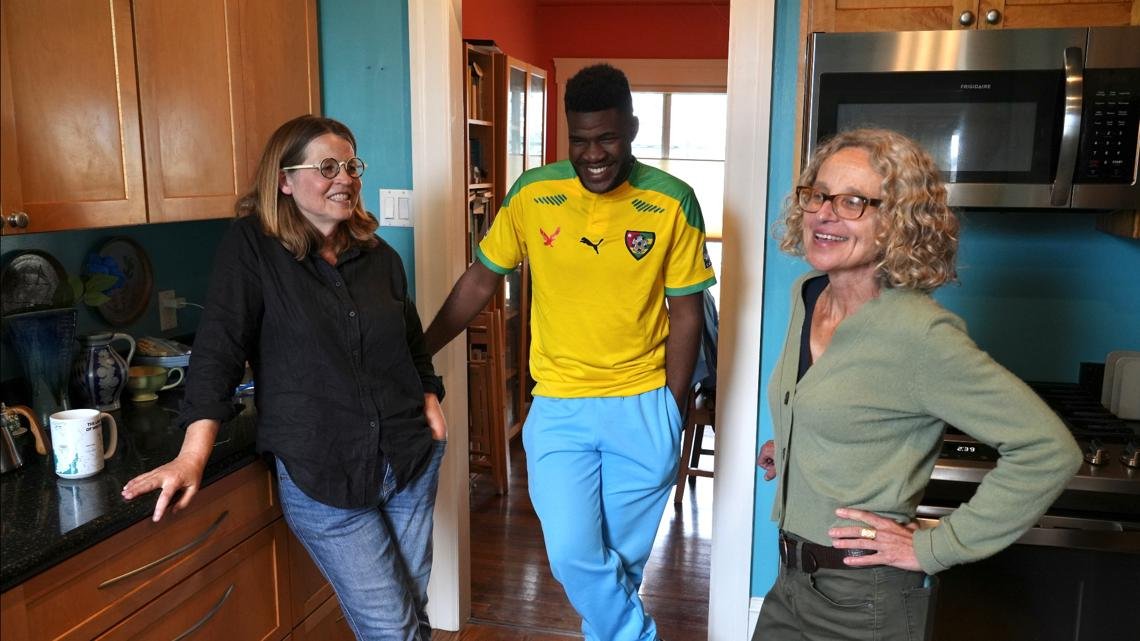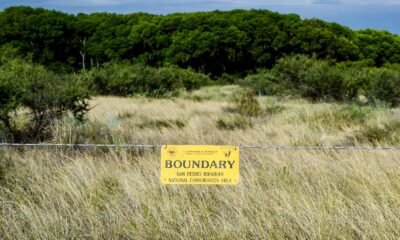cct-tracking
US ‘Welcome Corps’ Aids LGBTQ+ Refugees Escaping Brutal Crackdowns on Gay Rights

In a global landscape where more than 60 countries have enacted anti-LGBTQ laws, many individuals are fleeing the Middle East and Africa in search of asylum.
In San Francisco, the story of Cabrel Ngounou from Cameroon highlights the severe consequences of such laws. After being discovered in a relationship with his boyfriend, Ngounou faced violence from neighbors and was cast out by his family. This led to a harrowing four-year journey through five countries, during which he endured trafficking and captivity in Libya, along with harassment in Tunisia.
“My sisters told me I need to get out of the house because my place is not there,” Ngounou recalled, which ultimately pushed him to leave his home country.
His plight gained attention after he participated in a protest outside the U.N. refugee agency in Tunisia. Ngounou arrived in the United States in March, where he joined the Welcome Corps program, designed to connect Americans with newly arrived refugees.
Since its inception, the program has paired 3,500 sponsors with 1,800 refugees, with a significant interest from the public; over 100,000 individuals have expressed a desire to become sponsors.
The Biden administration is actively working to revitalize refugee programs that were significantly reduced under the previous administration. Recently, it announced the successful resettlement of 100,000 refugees in fiscal year 2024, marking the highest number in over three decades.
In stark contrast, Donald Trump has pledged to maintain his restrictive policies on refugees if he returns to office. This includes barring refugees from Gaza and reinstating ideological screenings for immigrants.
Under the Biden administration, the State Department has appointed officials specifically to identify LGBTQ refugees facing persecution due to their sexual orientation or human rights work. Jeremy Haldeman from the Community Sponsorship Hub emphasized the unique vulnerabilities these individuals face, often coming from regions where their identities are criminalized.
The urgency for help is significant. Many LGBTQ individuals seeking asylum encounter perilous circumstances; in April, Uganda’s constitutional court upheld a law mandating the death penalty for “aggravated homosexuality.” Kathryn Hampton from Rainbow Railroad expressed the dire need for pathways to safety, noting that the demand for aid far exceeds available resources.
Another participant in the Welcome Corps program, 31-year-old Julieth Luna Garcia from El Salvador, shared her experience of abuse linked to her transgender identity. Upon arriving in the U.S., she accessed gender-affirming care for the first time, stating, “Here, I’m not scared to say who I am.” Garcia has since established a stable life, finding work and aspiring to become a lawyer.
Ngounou, now 19, is also crafting a new life in San Francisco, working in a coffee shop while taking college courses. His sponsors, including a lesbian couple, have played a pivotal role in helping him acclimate to his new environment, introducing him to LGBTQ resources and community spaces. Their connection allowed Ngounou to experience pride and freedom in ways he never thought possible.
“Here I’m really me … I feel free,” he expressed joyfully, emphasizing the stark difference from life in Cameroon or Tunisia, where he faced constant threats to his identity. His story underscores the importance of supportive networks for refugees and highlights the ongoing struggles faced by LGBTQ individuals around the globe.


















